Content Warning: This article will contain discussions of physical abuse, neo-nazism, and violence against the LGBT community.
I am a huge fan of the World of Darkness games. I try to buy new books when I can, and have run at least three different games for friends. So imagine my surprise when in November of 2018 I learned that White Wolf would no longer be developing any more material for the World of Darkness. Instead, Modiphius Entertainment would develop all future material and White Wolf would exist only as a holding company. Clearly, something must have happened to cause such a drastic change. And as I looked into exactly what happened I went from shocked that they would shutter the studio to surprised that something like this didn’t happen sooner. Before I can explain why I feel that way though we have to go into some history.

First, we have to make a quick detour into names. Talking about White Wolf and the World of Darkness can be confusing as for a while there were two different systems with that name. To try and sum it up: White Wolf published the World of Darkness game lines, called both “Old World of Darkness” and Classic World of Darkness at different points. These lines, now formed under the name One World of Darkness, include Vampire: The Masquerade, Werewolf: the Apocalypse and Mage: The Ascension. Later they rebooted the game lines to create the New World of Darkness. These new game lines include Vampire: The Requiem, Werewolf: The Forsaken and Mage: The Awakening. Eventually most of the people who work on the New World of Darkness are form their own company, Onyx Path Publishing. They published a new edition of the New World of Darkness, now called ‘Chronicles of Darkness‘ to prevent confusion with the Old World of Darkness titles. White Wolf then made a new edition of the Old World of Darkness game lines.
Now that we’ve covered that, let’s get into the history of White Wolf.
The Birth of the Vampire: Founding & Early History
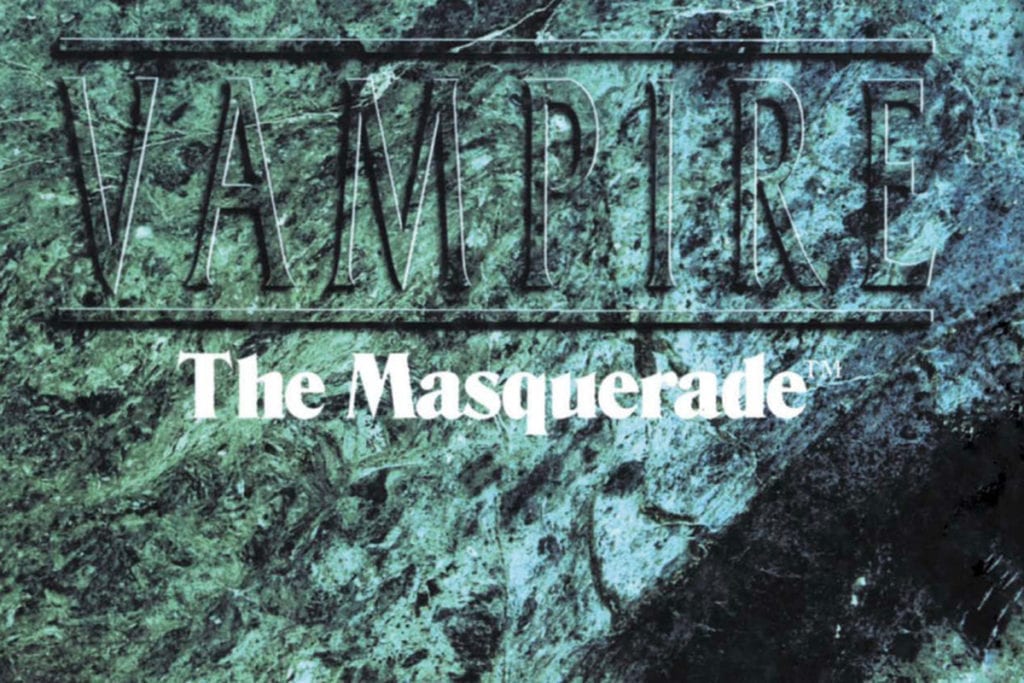
In 1991 a merger between Lion Rampant, the original publishers of the game Ars Magica, and White Wolf Magazine formed White Wolf Publishing. They released the first edition of Vampire: The Masquerade almost immediately afterward. It was an overnight success and put White Wolf on the map. There are several reasons for the book’s success, but one of the biggest draws was the game’s atmosphere. It was just darker than a lot of the other games on the market at the time. In many ways, the tabletop gaming industry was beginning to mirror the comic book industry of the time, where ‘Darker and Edgier’ products were becoming popular, with the rise of Vampire coinciding with the rise of Cable, Spawn, and other anti-heroic characters. Add to this the fact that kids playing D&D in the 80s had become teenagers and young adults by the 90s. They were looking for a different type of game and Vampire gave that to them. The success of Vampire led to the creation of Werewolf: The Apocalypse the next year and Mage: The Ascension the year after that.
Even as Vampire took the world by storm, the seeds of White Wolf’s future problems were already being planted, most prominently their incessant need to push the envelope of darkness as much as possible. Supplementary books covering the Holocaust (1997’s Charnel Houses: The Shoah) and a vampire clan that resembled the worst stereotypes of the Roma (Clan Ravnos) showed that sometimes White Wolf was more concerned about being edgy then making a good product. They also courted controversy with their own version of the ‘Satanic Panic’ that had haunted Dungeons and Dragons in the 80s. In White Wolf’s case though, the danger ended up quite real.
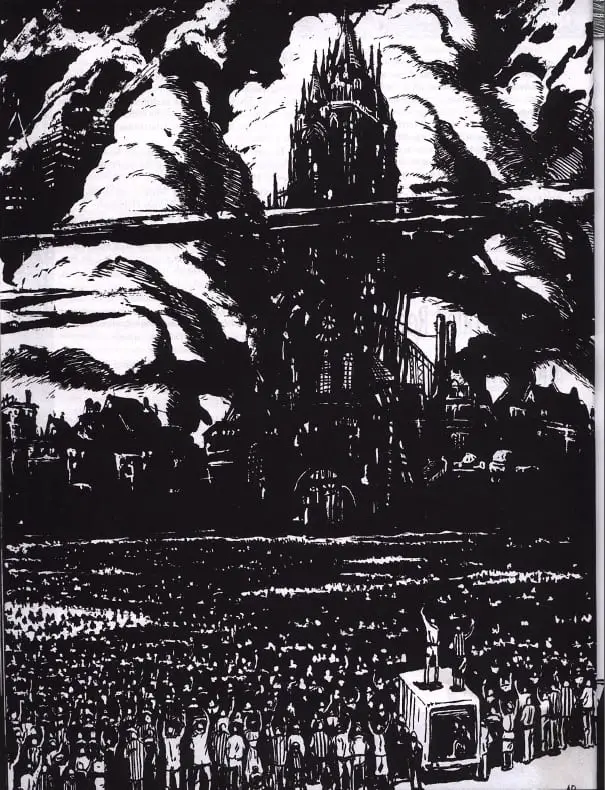
When a teenager named Rod Ferrell started a group based loosely based Vampire: The Masquerade, it started as just an extension of teenage rebellion before it became something darker. He began to refer to himself as “Vesago,” a 500-year old vampire who skulked around cemeteries and fed his blood to others. In 1996 the “Vampire Clan,” as it was called, seemed to have become a full-blown cult. The group traveled from their home in rural Kentucky to Florida, to induct Heather Wendorf into the cult. As a part of this, and to help the new member get away from her home, Ferrel killed Naoma Queen and Richard Wendorf, Heather’s parents, and fled the state. The group fled cross country until an ill-placed phone call finally got them arrested in New Orleans. The four teenagers who’d come to Florida were charged for the crime, with Ferrell tried and convicted of first-degree murder, becoming the youngest person at the time to sit on Death Row. In spite of this controversy, White Wolf continued to do very well. At least until 2006.
The Hunters Close In: White Wolf Nears Bankruptcy
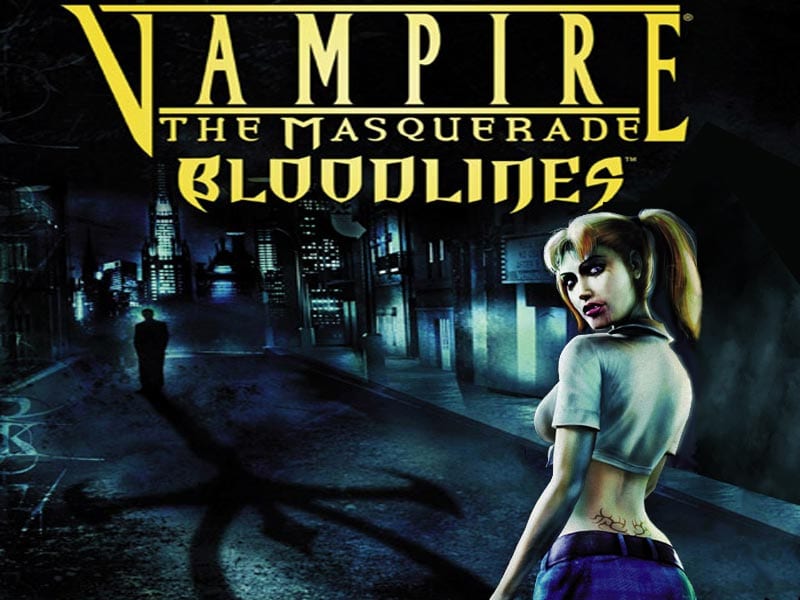
As the 90s went on, White Wolf seemed to be on top of the world. They added more game lines to their overarching World of Darkness setting, with shapeshifters, mages, ghosts, and even mummies joining the game. They also started to publish some video games based on their properties, including the cult classic Vampire The Masquerade: Bloodlines. All was not well, however. These new game lines connected to the others through a confusing meta-plot that didn’t…always work. As the (sometimes self-contradicting) lore began to pile up, players were starting to get unhappy. In 2004, White Wolf literally ended the Old World of Darkness by publishing different apocalyptic scenarios for each game. Later that same year, they began to publish the New World of Darkness books, starting with Vampire: The Requiem, which attempted to streamline and simplify both the world and mechanics of the game.
They hadn’t completely given up on the Old World of Darkness just yet, though, and in 2004 they merged with CCP Games, makers of EVE Online. The idea was to use their experience with online games to make an Old World of Darkness MMO. What ended up actually happening, however, was CCP Games started to take losses due to poor financial decisions, which they then transferred to White Wolf. For a few years, it looked like White Wolf would be driven to bankruptcy. But in October of 2015, Paradox Interactive, makers of Crusader Kings 2, announced that they would be acquiring White Wolf. It was obvious what Paradox wanted was to make a sequel to Vampire: The Masquerade: Bloodlines. Still, White Wolf was in dire financial straits and the purchase was a lifeline. They started work on the new fifth edition of Vampire: The Masquerade right away (which you can read all about in this article, from more innocent times).
The Straws That Broke the Camarilla’s Back
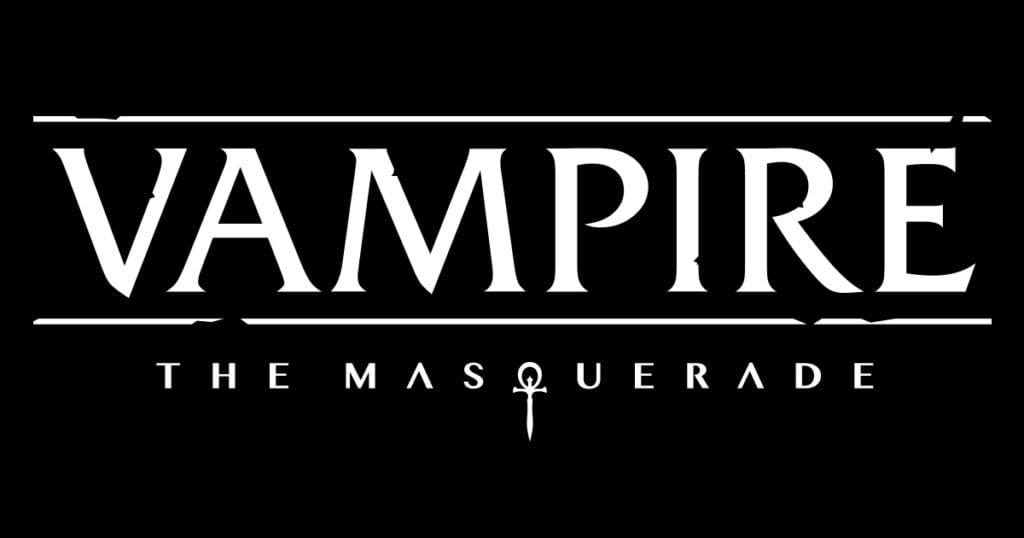
After Paradox acquired White Wolf, there were a few warning signs that things weren’t quite the same. One of the initial characters made for the quickstart demo could only drink blood from children. And once the game proper came out, one of the character concepts for a specific clan was a Neo-nazi. These were worrying signs, but you could gloss over them. White Wolf had a reputation for being edgy, after all. What was harder to ignore were the Neo-nazi dog whistles that seemed to find their way into the game, like the example dice roll that just happened to use the numbers 1, 4, 8, 8. White Wolf themselves seemed either not to notice or not to care.
The lesser of the breaking points came in 2019, when artist and game designer Zak Smith (also known as Zak Sabbath) was accused physically and sexually abusing women. Including his long-time girlfriend. Zak Smith had credits in several major tabletop games, and credited for a prominent role in developing the Vampire the Masquerade mobile app We Eat Blood. It’s bad enough to have strong accusations of abuse leveled at a freelancer you hired for some work. Hiring him on your staff and dismissing early claims against him as ‘false’? That’s a whole different kettle of fish.
The thing that really did White Wolf in though wasn’t the revelation about Zak Smith. No, it was a chapter in the Camarilla sourcebook for the fifth edition of Vampire: The Masquerade. The book’s main focus was on the Camarilla sect of vampires, the group of clans who zealously enforce the “masquerade” that hides them from humanity. White Wolf wanted in the new edition to explore vampires all around the world and move beyond their traditional settings in Western Europe and the United States. But it got sticky when it tried to add vampires to a modern-day controversy. Specifically, by stating that the Russian region of Chechnya was under the control of vampires. It further stated that the former Chechen president Akhmad Kadyrov, and father of the current head of the Chechen Republic Ramzan Kadyrov, was a vampire. The worst of it all though was that according to the book, the (still ongoing) anti-gay purges were actually a vampire plot to distract people from the fact that vampires were ruling the country.

This, to put it lightly, was controversial. People were rightfully aghast that White Wolf would use an ongoing tragedy for story fodder. New owners Paradox, who until now had been completely hands-off when it came to White Wolf and had zero input on what went into the books, acted swiftly. They pulled all copies of the book until edits were made, as well as edits to the V5 Core Rulebook as well as Camarilla’s sister book Anarch. Finally, in November of 2018, Paradox fired most of the senior staff from White Wolf and re-structured the company. White Wolf would also cease development and publishing internally. In effect, White Wolf was entirely absorbed into Paradox Interactive. The company only exists now as a holding company for the World of Darkness license.
Rise From Your Grave: Going Forward In The World of Darkness
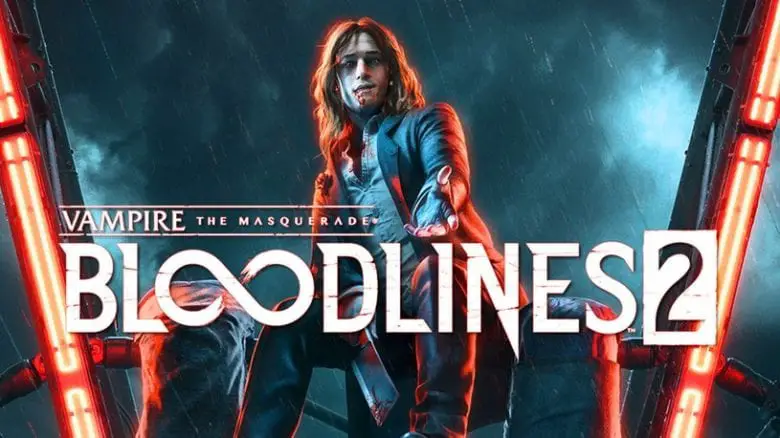
There are two morals we can take from this story. The first is that you have to always be aware of your audience, and the people you choose to represent your company. The second is to respond quickly to criticism. Some of the early missteps White Wolf made could have been mitigated by a faster response, and their later mistakes could have been avoided by paying attention to who they were hiring and what content they were producing. By doing both of those, they still might be producing content instead of existing more or less for brand recognition.
It’s not all bad news though. Paradox is still interested in the potential of the World of Darkness universe, and have let Modiphius take over the brand. The Bloodlines sequel is still being made and a video game based on Werewolf: The Apocalypse was recently announced. The Chronicles of Darkness setting is still going thanks to Onyx Path, with a brand new game line called Deviant: The Renegades in development. Both companies handling the brands seem to be far more inclusive, and careful when it comes to what they publish. So despite the fall of White Wolf, the future looks bright for the World of Darkness.

